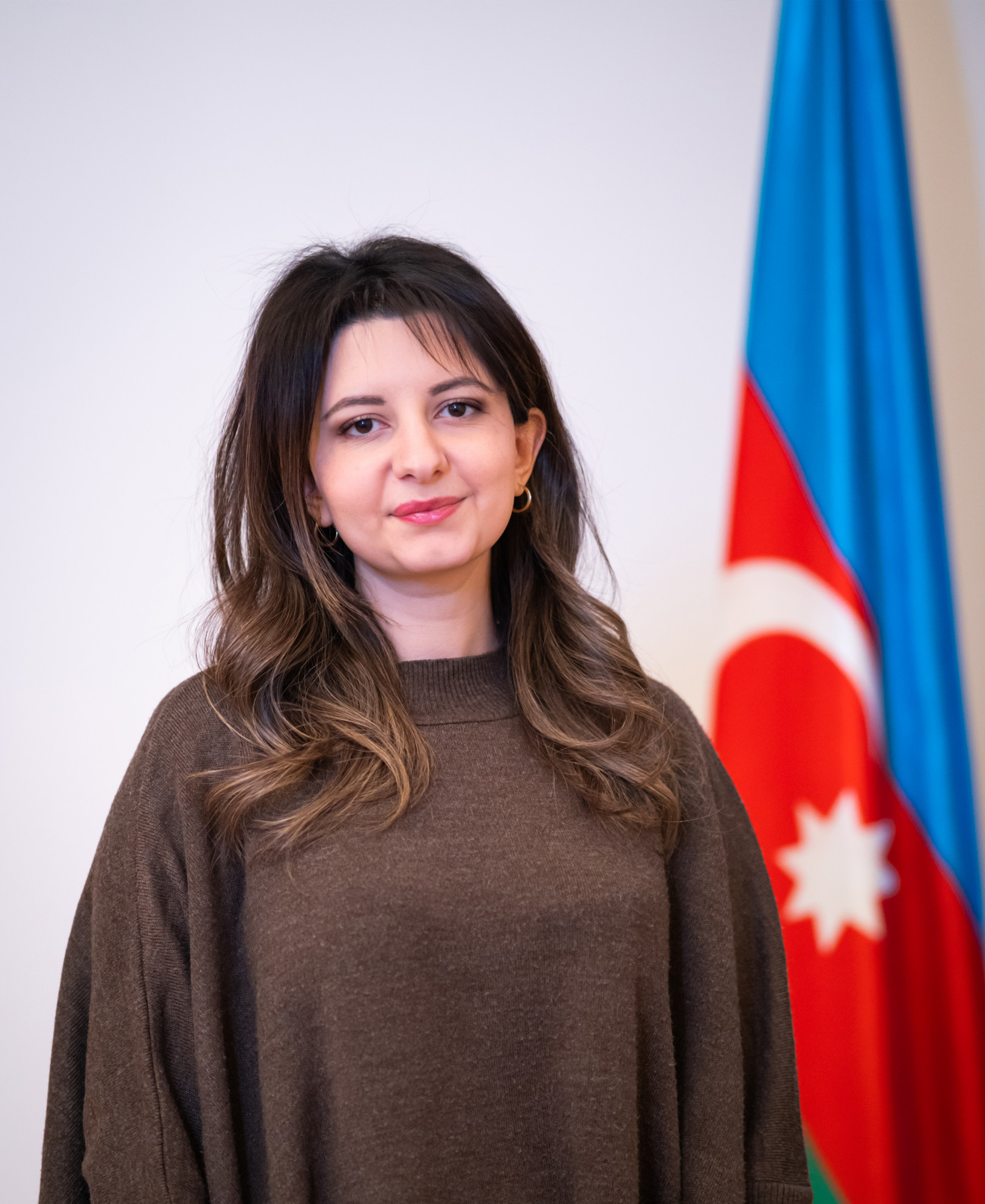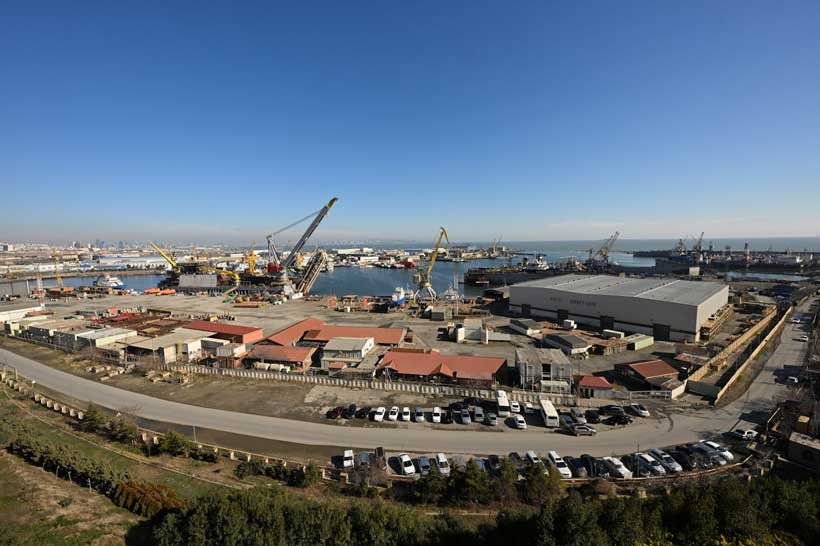The intensifying geopolitical competition among major global powers has heightened security and economic vulnerabilities worldwide, contributing to the erosion of the post-Cold War international order and exposing the limitations of international legal frameworks. Consequently, the Caspian region has become a key arena for geopolitical maneuvering, with dominant states seeking to integrate regional actors into exclusive alliance structures. In response, Azerbaijan has pursued a consistently independent and pragmatic foreign policy, prioritizing the preservation of its sovereignty, the maintenance of regional autonomy, and active participation in multilateral initiatives to effectively navigate these evolving global dynamics.
The persistent geopolitical rivalry among global powers has heightened security concerns and destabilized global economic conditions. The post-World War II international order faces considerable strain due to perceived limitations in the efficacy and enforcement of international law. These challenges are particularly pronounced in the Caspian region, where sovereign states have historically navigated a delicate balance in their relations with major global actors while prioritizing the preservation of their national sovereignty. Over the past three decades, Caspian littoral states have largely adhered to a policy of diplomatic neutrality. However, mounting pressure from competing global powers threatens to destabilize this fragile equilibrium. Certain actors are actively seeking to integrate these nations into exclusive alliance systems, a trend that undermines both regional cooperation frameworks and the sovereign prerogatives of individual states.
Following the restoration of its territorial integrity, Azerbaijan has strategically reoriented its foreign policy toward deepening cooperative engagements at both regional and global levels. The Second Garabagh War (2020) reaffirmed the applicability of military action under Article 51 of the United Nations Charter, underscoring the inherent threats that unresolved territorial disputes pose to regional security architectures. With the resolution of its long-standing territorial conflict, Azerbaijan has positioned itself as a proactive stakeholder in promoting stability across the Eurasian landmass. Its consistent and substantive participation in key regional and interregional organizations demonstrates its strong commitment to multilateral diplomacy and the advancement of economic integration initiatives. The examples below will suffice to demonstrate the ongoing tendency in this matter.
In 2015, Azerbaijan formalized its engagement with the Shanghai Cooperation Organization (SCO) by attaining dialogue partner status, aligning its national interests with the organization’s broader strategic objectives. The following year, a Memorandum of Understanding (MoU) signed in 2016 reinforced the commitment of both Azerbaijan and the SCO to collaboration across key areas, including regional security, counterterrorism, economic development, and energy sector cooperation. Additionally, Azerbaijan applied for SCO observer status in mid-2024 after eight years as a dialogue partner.This strategic engagement has yielded significant geopolitical and financial benefits for Azerbaijan, particularly by facilitating increased trade and investment flows between Asia and Europe. Azerbaijan’s pivotal role within the SCO framework is further strengthened by its significant investments in national infrastructure projects, including the Port of Baku and the Baku–Tbilisi–Kars Railway, both integral to the strategically vital Middle Corridor initiative. These projects strengthen critical trade arteries connecting East and West. Additionally, Azerbaijan actively contributes to regional security through its participation in the SCO’s Regional Anti-Terrorist Structure, focusing on countering extremism, cybercrime, and other transnational threats.
Moving forward, Azerbaijan’s CICA (The Conference on Interaction and Confidence-Building Measures in Asia) chairmanship marked a key moment that strengthened its diplomatic standing in Asia. As the current chair of CICA, Azerbaijan hosted the Council of Foreign Ministers meeting in December 2024 and is scheduled to host the Heads of State and Government Summit next year in 2026. Azerbaijan’s chairmanship agenda prioritizes strengthening regional dialogue platforms, advancing effective conflict resolution mechanisms, and enhancing economic and infrastructural interconnectivity across Asia. Given its strategic position as a pivotal transit hub, Azerbaijan’s objectives align with CICA’s broader goals of improving regional transport and trade networks. Azerbaijan’s leadership within CICA is expected to amplify Asia’s voice in global affairs and support regional mediation efforts.
A key priority in Azerbaijan’s evolving foreign policy framework is strengthening bilateral and multilateral relations with Central Asian nations. The convergence of linguistic, cultural, and geopolitical factors between the two regions provides a strong foundation for deeper collaboration. Furthermore, the alignment of their respective foreign policy perspectives reinforces Azerbaijan’s growing influence in this strategically important area. Azerbaijan’s expanding partnerships with Central Asian nations underscore its commitment to fostering robust regional cooperation.
Against this background, during the 6th Consultative Meeting of Central Asian Heads of State in 2024, Azerbaijan reaffirmed its commitment to regional cooperation by signing pivotal agreements aimed at enhancing trade, fostering industrial collaboration, and advancing infrastructure development. These agreements further solidify Azerbaijan’s strategic alliances with Kazakhstan, Uzbekistan, Turkmenistan, the Kyrgyz Republic, and Tajikistan. Another significant event in 2024 was the first-ever meeting between the energy ministers of Azerbaijan and Central Asian nations, leading to an important joint statement on energy collaboration. This deal established a comprehensive framework for joint efforts in energy security, renewable energy initiatives, and critical infrastructure development. Recognizing the region’s strategic importance in global energy logistics, Azerbaijan’s proactive engagement in this sector strengthens international energy security and drives technological innovation.
Furthermore, as part of its commitment to regional connectivity, Azerbaijan has strategically prioritized the expansion of the Middle Corridor, a vital trade artery linking Central Asia with Europe and Türkiye. So far, Baku has made significant investments to expand the capacity of the Port of Baku and modernize the Baku–Tbilisi–Kars Railway line, all aimed at ensuring seamless and efficient intercontinental trade flows. Consequently, in 2024, transit traffic among OTS member states via the Middle Corridor increased by 15%, highlighting the growing importance of regional connectivity for both economic and strategic objectives. Complementing these physical infrastructure enhancements, Azerbaijan is actively advancing digital connectivity projects, notably the ‘Digital Silk Way’ initiative, which seeks to establish a secure and reliable digital environment linking Central Asian nations to global markets. These diverse efforts enhance Azerbaijan’s long-term economic strength and significantly contribute to the integration of regional trade.
Meanwhile, Azerbaijan’s active engagement within the Organization of Turkic States (OTS) highlights its strong commitment to regional security and defense cooperation among member states. At the 11th OTS Heads of State Summit in 2024, President Ilham Aliyev underscored the critical need to strengthen collaboration in the defense industry and establish robust collective security mechanisms. In line with this commitment, Azerbaijan has deepened its partnerships with the security agencies of fellow OTS member states, increasing joint military exercises and enhancing intelligence-sharing initiatives. Moreover, the OTS has played a crucial role in advancing transportation networks across the broader Eurasian region.
Azerbaijan’s foreign policy is driven by a strategic commitment to multilateral cooperation, regional stability, and economic resilience. Baku’s proactive engagement in both regional and international organizations underscores its dedication to fostering strong security and economic partnerships. By deepening ties with Central Asian nations and actively participating in key multilateral frameworks such as the Shanghai Cooperation Organization (SCO), the Conference on Interaction and Confidence-Building Measures in Asia (CICA), and the Organization of Turkic States (OTS), Azerbaijan is solidifying its position as a pivotal geopolitical actor in Eurasia. Furthermore, through the implementation of strategically significant infrastructure projects, including the Middle Corridor and the Digital Silk Way initiatives, Azerbaijan is emerging as a crucial logistics hub connecting Asia and Europe. Its balanced foreign policy, emphasis on proactive regional diplomacy, and strategic investments in security and economic development collectively position the nation as a central force in shaping regional stability and fostering prosperity across Eurasia and beyond.
https://moderndiplomacy.eu/2025/03/20/the-asian-dimension-of-azerbaijans-strategic-imperatives/








